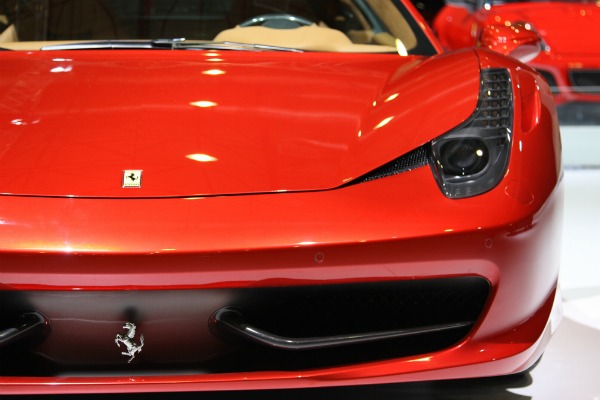
The end of the combustion engine era is getting closer in the European Union after Italy signaled it may accept a compromise deal to phase out new cars running on fossil fuels by the middle of the next decade.
Italy, home to Ferrari NV and Lamborghini, indicated during a meeting of energy ministers on Tuesday it may give up its push for a five-year delay in the EU’s plan for automakers to eliminate greenhouse gases from the vehicles they sell. Energy Minister Roberto Cingolani said he was “satisfied” with a compromise proposed by Germany that could enable the use of green fuels after 2035.
“This goes in the direction that we hope,” Cingolani told his counterparts.
That would pave the way for France, the current holder of the EU’s rotating presidency, to push through a deal on new car emissions standards and other green laws in a sweeping climate and energy overhaul. The package also includes a contentious proposal to reduce a flagship fund to help the shift to a green economy and a sweeping reform of the region’s carbon market.
If backed by a weighted majority of member states, the deal would endorse proposals put forward almost a year ago by the European Commission, the EU’s executive arm, to implement a stricter emissions-reduction goal of at least 55% by 2030 from 1990 levels. They included a plan to effectively phase out combustion engines in new cars by 2035, a target France recommended governments approve.
An agreement among ministers would define member states’ negotiating stance for further talks with the EU Parliament and the European Commission on the final shape of the so-called Fit for 55 package. As members of the assembly agreed earlier this month to eliminate new car emissions, Europe is set to write into law ending a mode of transport that has dominated society for more than a century.
Italy, alongside Bulgaria, Slovakia, Portugal and Romania, was seeking a 90% reduction in carmakers’ emissions by 2035, the year that the European Commission has targeted a complete cut. It also wanted to secure an extension of exemption for niche manufacturers, such as Ferrari, until at least 2036 from 2029 proposed by the commission.
The country has been particularly concerned with the push to decarbonize road transport, with it lagging some of its European peers and also boasting a strong supercar industry. While Ferrari now plans to have its first fully electric vehicle hit showrooms in three years, it will be late to the party — Porsche started selling its battery-powered Taycan model in 2019.
In an attempt to enable a compromise, Germany proposed adding in a non-binding part of the car emissions law a call on the commission to propose registering after 2035 vehicles running exclusively on carbon-neutral fuels. The addition is important to Germany and can be a bridge for the overall discussion, said Environment Minister Steffi Lemke.
“We need a strong and fast CO2 reduction, but we need to keep openness on technologies,” she told the ministers. “We hope that this addition, which is important to the German government, hopefully this is agreeable and which can enable us to reach a joint acceptable solution.”
Ministers will resume talks around 3:30 p.m. in Luxembourg after France shares amended proposals to address their concerns on car emissions and other laws.
(By John Ainger and Ewa Krukowska)
Comments